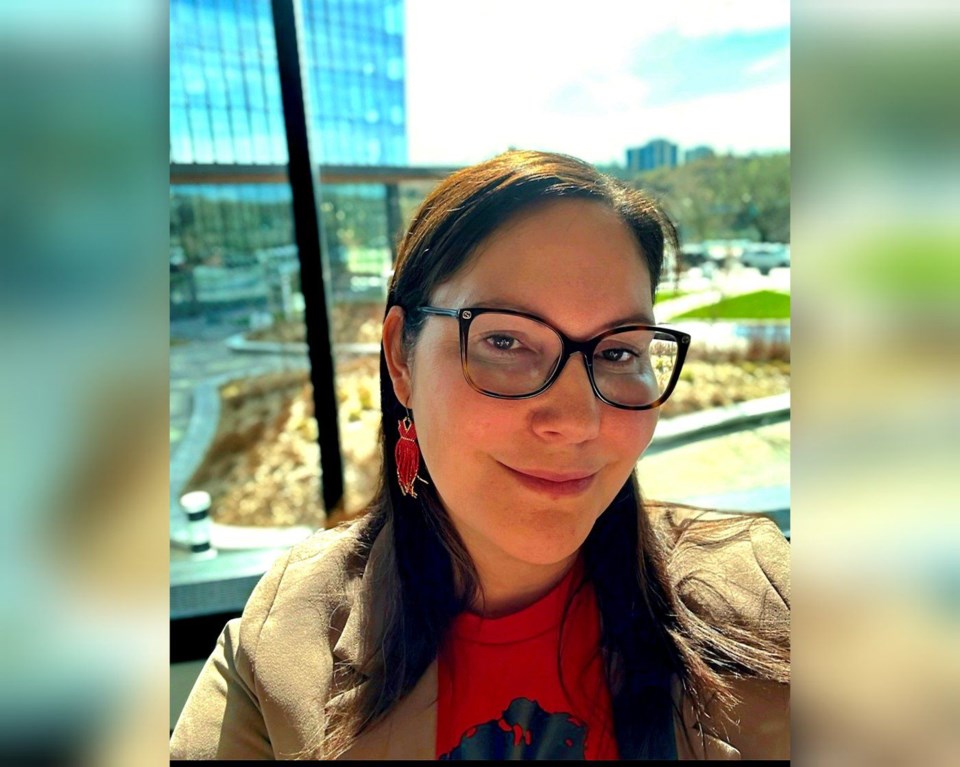REGINA — Dr Kathy Walker has begun her role as one of the most important arbiters in the province for truth and reconciliation − treaty commissioner.
“I’m really looking forward to helping move forward and support dialogue on treaties,” she said.
It's fitting her official first day took place on the National Day for Truth and Reconciliation often referred to as Orange Shirt Day.
“When you think about the purpose of dialogue, it’s to increase understanding and to commit to action,” said Walker. “So that’s what I hope to do – create dialogue that will lead to more understanding, action, and implementation of the Treaties.”
From the Okanese First Nation, she is the sixth person appointed to lead the Office of the Treaty Commissioner (OTC) and only the second woman to do so.
Walker understands the importance of her new role and is committed to continuing the positive work already done by the previous treaty commissioners.
“I try to stay grounded and approach things in a humble way,” she said. “I think it’s important to take direction from the treaty Elders and leadership ... It’s about taking direction and listening to people. I don’t think it’s for me to come in and say, ‘This is how things should go.’”
Walker has had the opportunity to listen and learn from great leaders, many of whom are in her own family. This includes her father who served as both a chief and headman for Okanese, as well as her aunt, Marie-Anne Day Walker-Pelletier, now retired, who holds the title as the longest-serving, elected chief in Canadian history.
“They were both people who would lead by example,” she said. “My dad had a lot of integrity, and genuinely cared about making life better for everyone. I always try to emulate that. I’d say the same for my aunt.”
Despite being surrounded by great leadership, Walker didn’t set out to be a leader or even an academic for that matter.
But much like the altruistic motives of her family, Walker found herself continually returning to school in pursuit of a way to improve the political systems that govern the lives of Indigenous people.
Walker holds a Master of Political Science, a Master of Business Administration and a PhD in Political Science.
In 2017, she became a lecturer at the University of Saskatchewan and then an assistant professor.
“I think that the big issue with the dominant political system is that, for a long time, there wasn’t any sort of real acknowledgement of the fact Indigenous Nations existed here as nations with our own structures, processes, and governments,” said Walker.
She believes her role as both an academic and an educator is to bring Indigenous knowledge into present-day systems.
“People like to use the word ‘Indigenization’, but it goes beyond that,” said Walker. “It’s understanding that there were nations that were here that had their own culture and ways of relating to the land and each other, and these all have value.”
Her own lived experience has shown her how the dominant systems can be oppressive.
As a graduate student with a young daughter, Walker couldn’t afford a place to live. This brush with homelessness left a permanent mark on her and now she is doing what she can to change things from the inside out.
For the past five years, she’s been part of the Saskatchewan Homelessness Advisory Board (SHAB).
“I try to do what little I can to address homelessness,” said Walker. “A lot of people that are homeless are Indigenous – we were never supposed to be homeless under the treaties.”
Often society attempts to blame the people for being homeless, she said, adding homelessness is a complicated issue and sometimes it involves situations that are out of a person’s control.
Walker said more dialogue leading to action needs to occur when it comes to Reconciliation. This includes more effort to address the TRC's Calls to Action and the MMIWG Calls to Justice.
“If you’re using those as a yardstick in terms of reconciliation, then you’d have a hard time saying that we’ve moved very far along,” said Walker. “We don’t live in a theoretical world. We live in a real world where you need to take action.”




